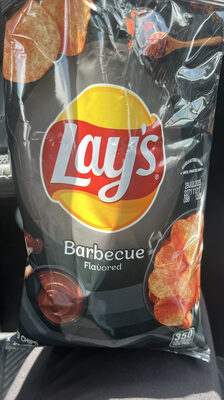
Barcode: 028400355599
Barbecue Flavored
HALAL
📝 Reason: All major ingredients are plant based and typically Halal. However, ‘natural flavors’ and ‘caramel color’ can be derived from animal or alcohol sources, or use alcohol/enzymes in processing, making them Doubtful without specific Halal certification. Islam teaches (Quran 5:3) to avoid doubtful things; thus, without certification, these ingredients cause doubt.
🏷️ Category: Plant Based Foods And Beverages, Plant Based Foods, Snacks, Cereals And Potatoes, Salty Snacks, Appetizers, Chips And Fries, Crisps, Potato Crisps
📄 Certificates: No Artificial Flavors, Vegetarisch, Vegan
Ingredients:
Details
Exploring the Halal Status of Barbecue Flavored Snacks
When considering snacks like Barbecue Flavored snacks, it is essential to understand their Halal status, especially for consumers who adhere to Islamic dietary laws. This snack categorizes under Plant Based Foods And Beverages and specifically falls within the realm of salty snacks and crisps. Today, we will delve into the ingredients to ascertain the Halal authenticity of this popular snack.
What Makes a Product Halal?
To be deemed Halal, food products must comply with Islamic law, which forbids the consumption of certain substances and mandates that permissible items must not be contaminated with Haram (forbidden) elements. The overall quality and source of food ingredients must align with these principles. Barbecue Flavored snacks claim their Halal status primarily based on their plant-based composition; nonetheless, some ingredients warrant a closer inspection due to their ambiguous nature.
Ingredients Breakdown
The primary ingredients in Barbecue Flavored snacks include:
- Potatoes
- Vegetable oil (canola, corn, soybean, and/or sunflower oil)
- Sugar
- Salt
- Dextrose
- Maltodextrin (made from corn)
- Molasses
- Torula yeast
- Natural flavors
- Onion powder
- Spices
- Tomato powder
- Paprika
- Corn starch
- Paprika extracts
- Caramel color
- Yeast extract
- Garlic powder
- Mustard seed oil
Detailed Ingredient Analysis
We will now explore each ingredient’s Halal status systematically:
- Potatoes: Naturally Halal and plant-based.
- Vegetable oil: Acquired from various plants; Halal unless processed with animal fat.
- Sugar: Classified as Halal unless clarified with animal bone char.
- Salt: Mineral salt is inherently Halal.
- Dextrose: Typically Halal; derived mostly from corn in this context.
- Maltodextrin: Made from corn and categorized as Halal.
- Molasses: Halal, derived from sugar sources.
- Torula yeast: A type of fungus/yeast that is Halal-friendly.
- Natural flavors: This is where ambiguity arises. These can be derived from both plant and animal sources, with no Halal certification available.
- Onion powder: Completely Halal; derived from plant sources.
- Spices: Typically Halal unless alcohol is utilized as a carrier, which lacks specification here.
- Tomato powder: Halal and plant-based.
- Paprika: Another plant-based spice that is Halal.
- Corn starch: Halal as it’s a plant-derived product.
- Paprika extracts: Extracted from paprika, and thus Halal.
- Caramel color: Generally Halal; however, the production process may involve questionable substances, which is concerning without clarity on its source.
- Yeast extract: Defined as Halal unless contaminated with Haram elements during processing.
- Garlic powder: Also plant-based and Halal.
- Mustard seed oil: Vegetable-derived and hence Halal.
Conclusion: The Halal Status of Barbecue Flavored Snacks
While most of the ingredients in Barbecue Flavored snacks are plant-based and generally Halal, the presence of uncertain items such as ‘natural flavors’ and ‘caramel color’ presents a dilemma. Without their specific Halal certification, these ingredients can lead to doubt about the product’s overall Halal status. According to Islamic doctrine, as outlined in the Quran 5:3, it is advised to avoid items with dubious origins. Therefore, for strict Halal consumers, seeking snacks that come with clear Halal certification is the best route.
In summary, while this snack appears Halal when considering the majority of its ingredients, its status is not absolute due to certain problematic components. Furthermore, as consumers navigate the complex landscape of food certifications, they should stay informed about what they consume, opting for products that prioritize Halal transparency and certification.
